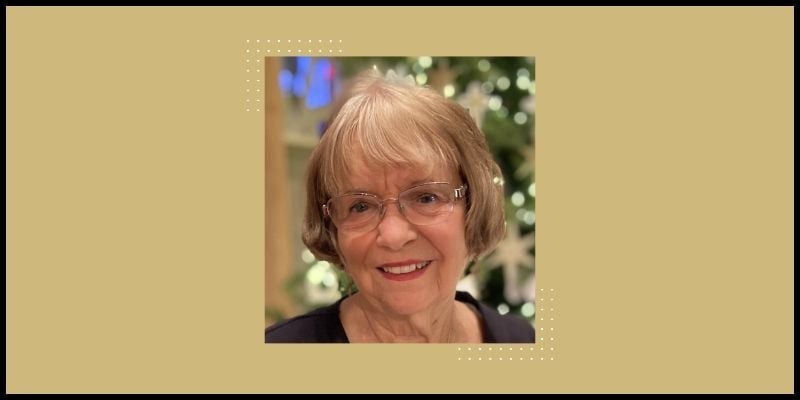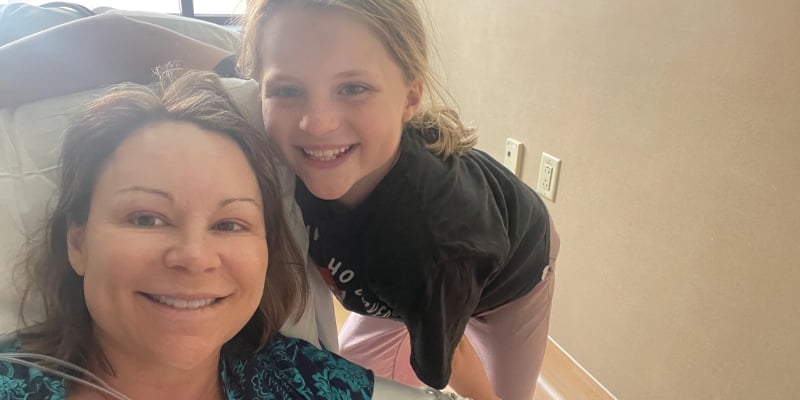Karen Zink’s interest in nursing bloomed from her mother, Marilyn Mason Short, who worked as a diploma nurse. Diploma nursing was a hands-on, skills-oriented approach to training great hospital nurses. Many of Zink’s personality traits may be tied to her mother as well. Her mother was a leader for nursing in the southwest portion of the state and had a hand in the setup of the first emergency department in Mercy Hospital in Durango, Colo., where Zink grew up.
By a young age, Zink had already encountered illness, birth and death, having grown up on a farm. They were an agriculture family, so Zink had hands-on experience with health care before follows no bad habits, so she wasn’t allowed to become a nurse’s aide. Zink’s mother believed that working as a nurse’s aide before formal education created a nurse that used “shortcuts”. She often accompanied her mother to work and was reading her mother’s nursing journals at 14. “My mother greatly influenced the direction of my life,” Zink says. “She was the nurse to our extended family and neighborhood.” At the age of 59, Zink’s mother died of an aneurysm. From that point, Zink followed in her mother’s footsteps and became the “family and neighborhood nurse.”
Zink’s first formal training was in the diploma program at Mercy Hospital. Zink didn’t stop with her diploma. After earning a BSN from Loretto Heights College (since closed and absorbed into Regis University), she earned a master’s degree from the CU College of Nursing in 1987.
As a graduation gift, her mother purchased her a membership to the Colorado Nurses Association (CNA). A gift that Zink never lets lapse, partly in memory of her mother, but also because the association is an incredible networking organization. For a time, Zink was the newsletter editor for District 20 of the CNA, as well as serving on the District 20 Board. At this time, Zink learned about the political world and legislative maneuvering. By the age of 27, Zink had earned an award from the American Nursing Association for sustained contributions to the profession.
Zink founded the Southwest Women’s Health Associates (SWHA) when she was 39. SWHA was the second nurse practitioner clinic in the United States. It is one of the only such clinics in the Durango area, Zink says, offering primary and preventive care for women, as well as GYN care such as endometrial biopsies, colposcopies and contraceptive care.
The move to establish the clinic was “an interesting risk at the time.” There was not complete support from other health care leaders in the Durango area, but Zink was determined to offer a higher level of care for women. With the help of her business partner Debbie Jones, Lloyd Lifton and Dan Guiet, Zink was able to obtain the funding and the support necessary to begin taking patients at the practice for gynecology and women’s health.
“It took a while to become successful… but with grassroots efforts, open houses and utilizing the phonebook, it worked!” Zink hinted at the secret to her successful practice: “Loving what we do, listening to women, and being dedicated to optimizing health for women – in every way.” The practice currently has 4,500 active patients, including people from not only Colorado but other southwestern states.
Zink credits the College of Nursing with helping make Southwest Women’s Health Associates possible. “The faculty—especially Colette Kerlin and Joyce Roberts—were very helpful and creative. They figured out how we could take our credits to fit the requirements of the National Certification Corporation Board exam.” The college also created an outreach program in Durango, which helped to jumpstart the clinic.
When asked to reflect on the mentors she had at CU, Zink didn’t hesitate to mention Jean Watson. Dr. Watson, an Emeritus Dean of the College of Nursing, was one of the faculty that often flew to Durango to educate future nurses. Zink says she was greatly influenced by Dr. Watson’s Theory of Human Caring. “We had an incredible opportunity to be shaped by her – her theories.” Zink still lives and works by those theories today.
Her leadership philosophy is likely rooted in her family and the community where she was raised, Zink says. “There was no room for arrogance or being full of oneself.” Zink is sure to treat her staff with love, appreciation, and respect. “I choose to lead with love… When I became an NP there were very few women in medicine, so women didn’t get the chance to be women – women caring for women.”
Learn more about the Southwest Women’s Health Associates here: http://southwestwomenshealth.com/


